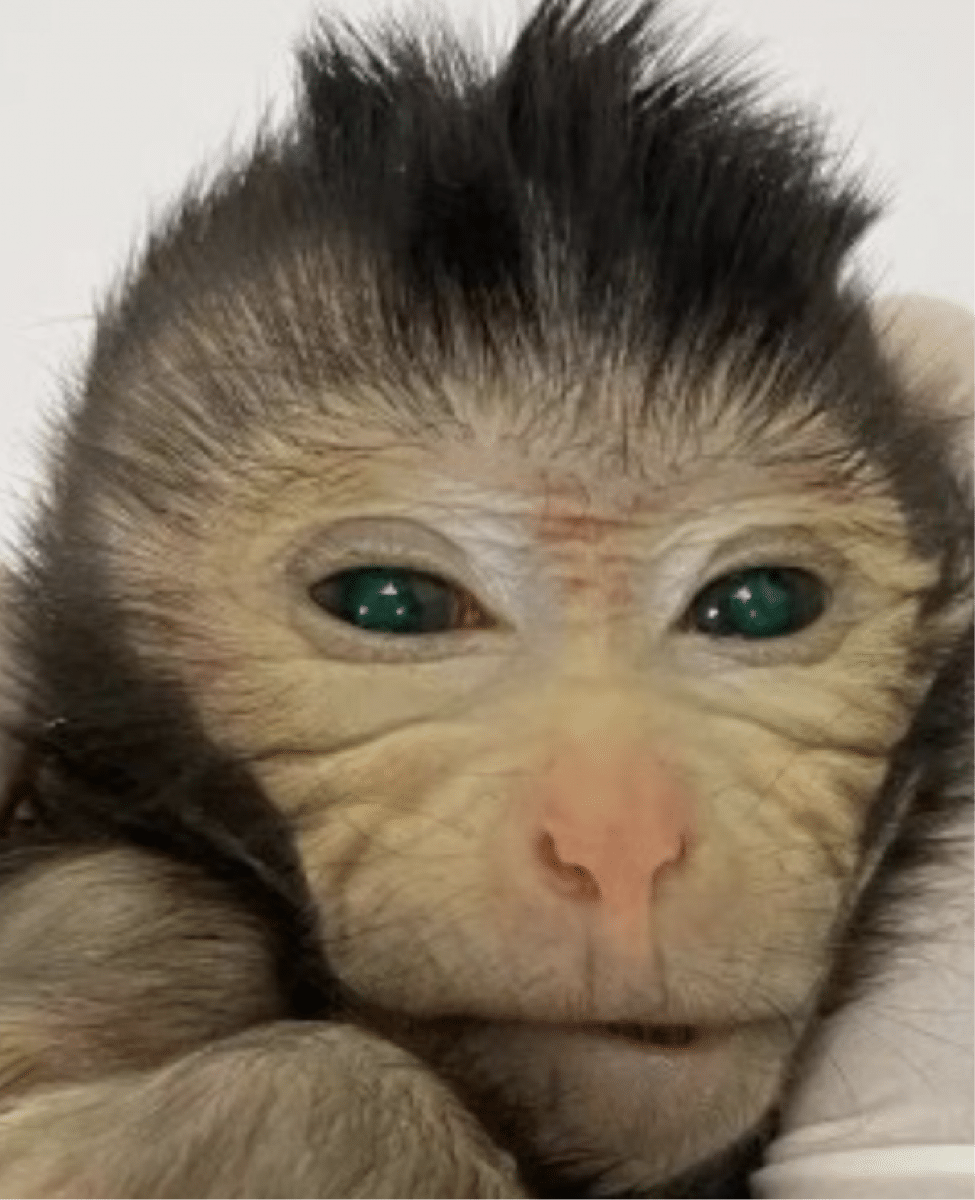Chinese Lab Creates A Monkey With Fluorescent Eyes & Glowing Fingers
The monkey was conceived using cells taken from more than two parents.
In China, a monkey with alien-like qualities has been successfully bred and born
According to CNN, the male long-tailed macaque is a chimaera — an organism that contains two different sets of DNA — and has glowing yellow fingertips in addition to fluorescent green eyes.
To create such a creature, researchers fused together two different embryos from the same species, leading the monkey to possess distinct DNA strands from both embryos.
The project was conducted with a focus on mixed donated stem cells, which serve as the foundation for all other cells in living creatures
In the experiment, the process resulted in 12 pregnancies, which led to six live births. However, from these six births, only one baby monkey survived the birthing process.
This monkey lived for 10 days before getting euthanised due to hypothermia and breathing difficulties, underscoring the imperfections within the process.
Still, this was considered a massively successful project due to the fact that the specimen was the most mixed (or most chimeric) of all such monkeys born from the same process.
In its body, the scientists observed that the mix was apparent in the cells and tissues of several organs, including the brain, heart, liver, gastrointestinal tract, and the cells that would eventually transform into sperm cells.
As for the glowing fingertips and fluorescent eyes, these were a result of visible markers injected into the donated stem cells
In each of the monkey embryos, the team injected a donor set of pluripotent stem cells.
These stem cells were 'labelled' with a green fluorescent protein to help the scientists identify which tissues and cells were associated with the donated stem cell lines, which is why the monkey was born with glowing fingertips and green eyes.
According to the researchers, this work is vital for guiding scientists towards more effective animal conservation efforts
Speaking on his team's efforts, Zhen Liu, a senior author of the study said that this breakthrough could help generate more precise monkey models, which could in turn help scientists better understand neurological diseases as well as procedures such as in vitro fertilisation (IVF).
While there have been other live chimeric monkeys in the past, none have lived as long as this one. Additionally, this specimen had a particularly large amount of stem cell contributions to the brain, a major plus point for researchers looking to model neurodegenerative diseases.

